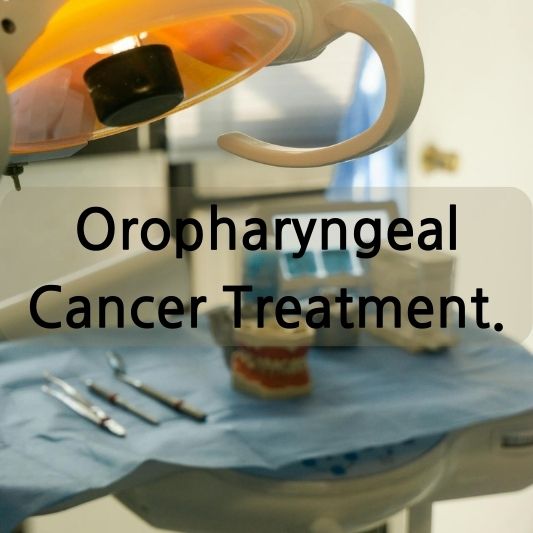Let’s look at how to treat oropharyngeal cancer.
Introduction
Welcome to our comprehensive guide on Oropharyngeal Cancer treatment. In this article, we delve into the various aspects of managing and overcoming this condition, offering insights, advice, and support for patients and their loved ones.

Understanding Oropharyngeal Cancer
What is Oropharyngeal Cancer?
Oropharyngeal cancer refers to cancerous growths in the oropharynx, which includes the base of the tongue, tonsils, soft palate, and the walls of the pharynx. These cancers typically develop in the squamous cells lining these areas.
Causes of Oropharyngeal Cancer
The primary cause of Oropharyngeal Cancer is the human papillomavirus (HPV), particularly HPV type 16. Other risk factors include smoking, excessive alcohol consumption, and a weakened immune system.
Symptoms of Oropharyngeal Cancer
Symptoms may include persistent sore throat, ear pain, difficulty swallowing, a lump in the neck, and unexplained weight loss.
Diagnosing Oropharyngeal Cancer
Diagnostic Tests
Diagnosis often involves a combination of physical examinations, imaging tests like CT scans and MRIs, biopsies, and endoscopies.
Stages of Oropharyngeal Cancer
Oropharyngeal cancer is staged based on the size of the tumor, its spread to nearby lymph nodes, and whether it has metastasized to distant organs.
Treating Oropharyngeal Cancer
Surgery
Surgical intervention may involve removing the tumor and affected tissue, as well as reconstructive procedures to restore function and appearance.
Radiation Therapy
Radiation therapy utilizes high-energy beams to target and destroy cancer cells while minimizing damage to surrounding healthy tissue.
Chemotherapy
Chemotherapy employs powerful medications to kill cancer cells or inhibit their growth. It is often used in combination with other treatments.
Targeted Therapy
Targeted therapy focuses on specific molecular targets involved in cancer growth and progression, offering a more precise and effective treatment approach.
Immunotherapy
Immunotherapy harnesses the body’s immune system to recognize and attack cancer cells, potentially enhancing the body’s natural defenses against the disease.
Clinical Trials
Participation in clinical trials may provide access to cutting-edge treatments and therapies that are not yet widely available.
Coping with Oropharyngeal Cancer
Emotional Support
Coping with cancer can be emotionally challenging. Seek support from loved ones, counselors, or support groups to navigate through difficult times.
Nutrition and Diet
Maintaining a healthy and balanced diet is crucial for supporting the body’s strength and resilience during cancer treatment.
Physical Therapy and Rehabilitation
Physical therapy programs can help restore mobility, strength, and function following surgery or other treatments.
Support Groups and Community
Resources Engaging with support groups and community organizations can offer valuable connections, resources, and encouragement throughout the cancer journey.
FAQs
Can Oropharyngeal Cancer be cured?
Yes, with prompt diagnosis and appropriate treatment, many individuals with Oropharyngeal Cancer can achieve remission or cure.
What are the side effects of radiation therapy?
Common side effects of radiation therapy for Oropharyngeal Cancer may include fatigue, sore throat, difficulty swallowing, and changes in taste.
How long does chemotherapy treatment last?
The duration of chemotherapy treatment varies depending on factors such as cancer stage, type of drugs used, and individual response to treatment.
Is HPV vaccination effective in preventing Oropharyngeal Cancer?
HPV vaccination has been shown to significantly reduce the risk of HPV-related cancers, including Oropharyngeal Cancer.
Are there alternative therapies for Oropharyngeal Cancer?
While some individuals explore complementary and alternative therapies, it’s essential to consult with healthcare professionals to ensure safety and effectiveness.
How can I support a loved one with Oropharyngeal Cancer?
Offer empathy, practical assistance, and companionship. Encourage open communication and provide emotional support during their treatment journey.
Conclusion
Navigating Oropharyngeal Cancer treatment can be daunting, but with knowledge, support, and perseverance, individuals can overcome challenges and achieve positive outcomes. Remember, you are not alone in this journey.
Bold statements reflect the ongoing commitment to providing accurate and supportive information to those affected by Oropharyngeal Cancer.
Learn more about oropharyngeal cancer!
